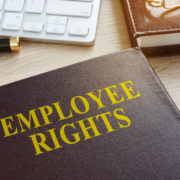How a Labor Consultant Prevents Unionization
Preventing unionization isn’t about silencing workers—it’s about listening to them early and often. That’s where a labor consultant steps in. Companies don’t hire labor consultants because they want to shut down communication. They hire them because they want to build it up before mistrust grows into something harder to manage.
A labor consultant works closely with business owners and executives to help prevent union organizing by improving internal relationships, addressing employee concerns, and fostering trust throughout the workplace. They are not just focused on stopping union drives. Their deeper focus is on the reasons employees consider unions in the first place—because those reasons can often be addressed internally without involving an outside organization.
The consultant begins by evaluating the health of a company’s workplace culture. This may involve private discussions with employees, reviewing how managers handle feedback, and assessing whether there are warning signs of dissatisfaction. These warning signs are often subtle—low morale, reduced productivity, or a sudden rise in grievances. Workers may not say they want a union outright, but they might talk about fairness, inconsistency, or feeling like they’re not being heard. A labor consultant helps business leaders spot these signals early so they can act on them constructively.
Once problem areas are identified, the consultant helps create and implement a plan. That might include manager training sessions, policy adjustments, improvements to internal communications, or holding company-wide meetings that encourage direct conversations between leadership and staff. The idea is not to overwhelm employees with information but to give them meaningful opportunities to speak, and to show that leadership is paying attention and following through.
One of the biggest roles a labor consultant plays is education. Many employees don’t fully understand how unions operate, what dues are required, how collective bargaining works, or what happens when strikes are called. A consultant can help present this information in a factual and fair way—without making promises or threats. The goal is to make sure employees understand what union representation actually means and what they might be giving up in exchange for it.
It’s also important to understand that preventing unionization isn’t just about reacting to signs of unrest. It’s about creating a stable and positive environment over the long term. A labor consultant helps companies build systems that encourage ongoing engagement with employees. That might mean setting up employee committees, conducting regular workplace satisfaction surveys, or offering more transparency about how decisions are made. When people feel like they have a voice, they are far less likely to look elsewhere for one.
If union organizing has already begun, a labor consultant helps the company respond without violating federal labor laws. There are very clear restrictions on what employers can and cannot say or do during a union campaign. A misstep—even if unintentional—can lead to legal trouble or fuel distrust among employees. A labor consultant helps the company remain compliant while still sharing its perspective and reinforcing its values.
In short, labor consultants are not only helping companies avoid unionization—they’re helping them build better workplaces. They offer support, guidance, and solutions that promote trust, accountability, and communication from the inside out. Preventing unionization isn’t about fear—it’s about creating a workplace that makes a union feel unnecessary.
Frequently Asked Questions: Labor Consultants and Unionization
What is the role of a labor consultant in union prevention?
A labor consultant works with business leaders to improve employee relations, address internal problems, and help prevent union organizing efforts before they gain traction.
Is it legal to hire a labor consultant to prevent unionization?
Yes. It is legal to hire a consultant to educate employees and improve workplace conditions, as long as the consultant does not engage in threats, coercion, or unlawful surveillance.
How do labor consultants help identify early signs of union organizing?
They assess company morale, communication breakdowns, and employee complaints to uncover issues that may lead to union interest.
Can a labor consultant talk to employees directly?
Yes, they can speak with employees if the employer allows it and if the communication complies with federal labor laws. The discussions are typically focused on providing information and addressing concerns.
What’s the difference between a labor consultant and a lawyer?
A labor consultant focuses on workplace culture, communication, and employee relations, while a labor lawyer deals more with legal compliance and defense during disputes or litigation.
How does a labor consultant help prevent a union election?
They guide the company in resolving internal problems before they escalate, help management communicate more effectively, and provide information to employees about their options and rights.
Can labor consultants assist after union activity begins?
Yes. If signs of union organizing emerge, labor consultants help businesses respond appropriately, communicate lawfully, and avoid missteps that could lead to unfair labor practice claims.
Do employees have to listen to a labor consultant?
No. Employees are not required to attend meetings or discussions unless they are during paid work hours and within the employer’s policies. However, most consultants aim to create an open, respectful dialogue.
How long does it take to see results from labor consulting?
That depends on the workplace. Some improvements may be immediate, while deeper changes in culture and trust may take weeks or months of consistent effort.
What industries benefit most from hiring a labor consultant?
Labor consultants work with a wide range of industries, including manufacturing, retail, healthcare, logistics, hospitality, and more—anywhere there is a risk of union organizing or a need to improve employee relations.
Call Labor Advisors LLC For A Free Consultation
If your business is showing signs of employee unrest or you want to take steps to remain union-free, now is the time to act. Early intervention can help you avoid long-term challenges, maintain compliance, and build a more positive workplace culture. Call Labor Advisors today at 1-833-4-LABOR-4 to schedule a free consultation and learn more about how we can support your company’s goals.









